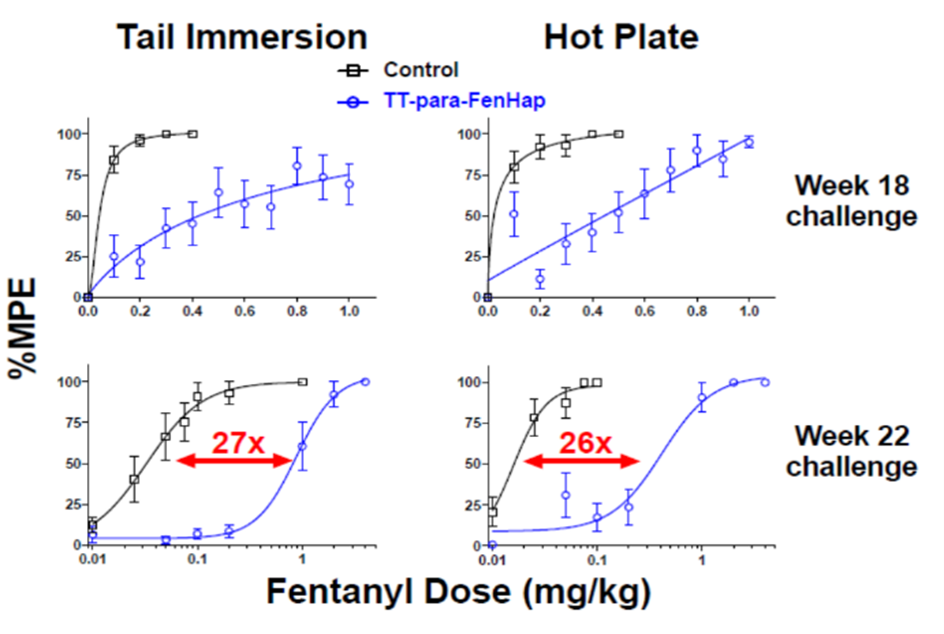Case ID:
HJF 561-19
Web Published:
3/27/2023
A technology related to novel fentanyl hapten compounds and their use in the preparation of vaccines against fentanyl and fentanyl analogs is available for licensing.
Applications and Advantages
- Novel compounds for use as vaccines against fentanyl and analogs
- High immunogenicity that generates fentanyl specific antibodies to reduce its distribution and blocking fentanyl entering into the brain
- May provide long-lasting protection due to long life of antibodies produced
Innovation Description
The dramatic increase in recent years of overdose deaths involving fentanyl represents a significant public health issue. As a result, an urgent need exists to develop effective therapies to counteract this trend. One approach has been to prepare a conjugate vaccine for the purpose of eliciting high levels of antibodies with cross-reactivity for various prepared fentanyl haptens.
Scientists from Henry M. Jackson Foundation (HJF), Walter Reed Army Institute of Research (WRAIR), and the National Institute of Health (NIH) have developed a class of novel fentanyl haptens that contain a thiol linker for facilitating coupling of the hapten to a carrier protein and that induce the formation of antibodies with different specificities for fentanyl derivatives than those reported in the conventional art. Six compounds of fentanyl haptens are available for further development towards clinical applications. Animal studies (Fig. 1) have shown that these compounds are able to induce the production of highly specific antibodies against fentanyl and its analogs with high affinities and may provide a long-lasting protection against overdosing of this type of opioids.

Fig 1. shows the results of immunizing mice with an exemplary carrier-fentanyl hapten conjugate of the present invention (TT-para-FenHap conjugate) compared to a control. The Week 22 challenge demonstrates that mice immunized with the fentanyl vaccine have a 26- to 27-fold increase in ED50 (50% effective dose).
Inventors
- Gary R. Matyas, Ph.D. WRAIR
- Oscar B. Torres, Ph.D. HJF/WRAIR
- Arthur E. Jacobson, Ph.D. NIH
- Agnieszka Sulima, Ph.D. NIH
- Eric W. Bow, Ph.D. NIH
- Kenner C. Rice, Ph.D. NIH
Innovation Status
Six fentanyl haptens are synthesized and tested in vitro and in vivo. Please see: Mol Pharm. 2020 Sep 8; 17(9): 3447–3460.
Intellectual Property Status
Patent applications have been filed in the U.S. (17/792,378) and Canada (3167691).